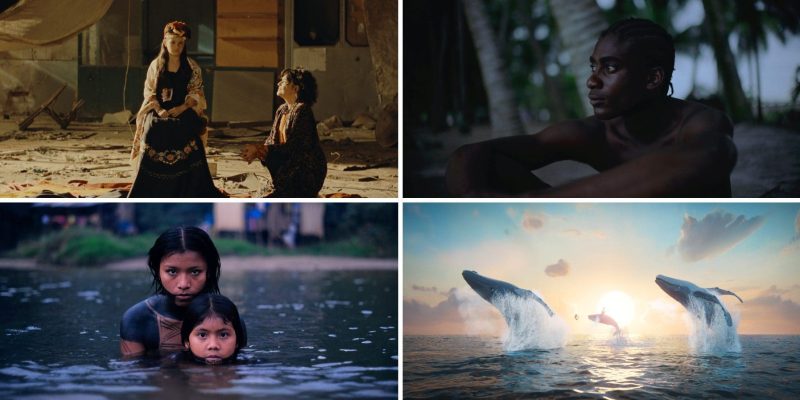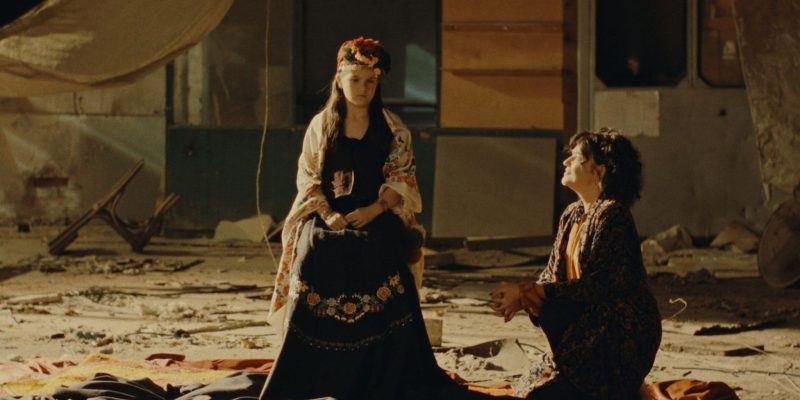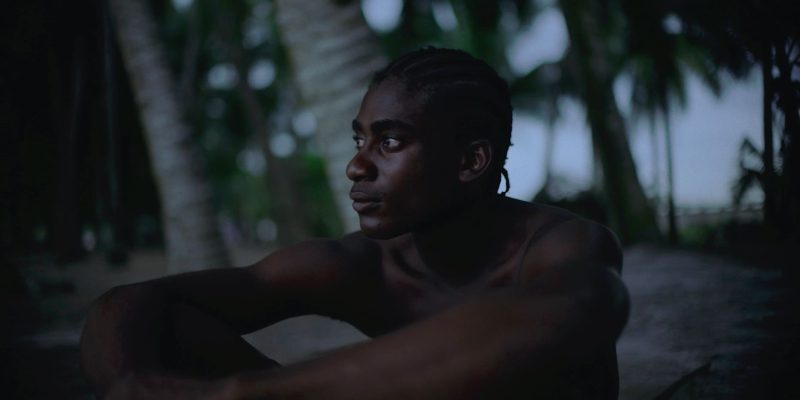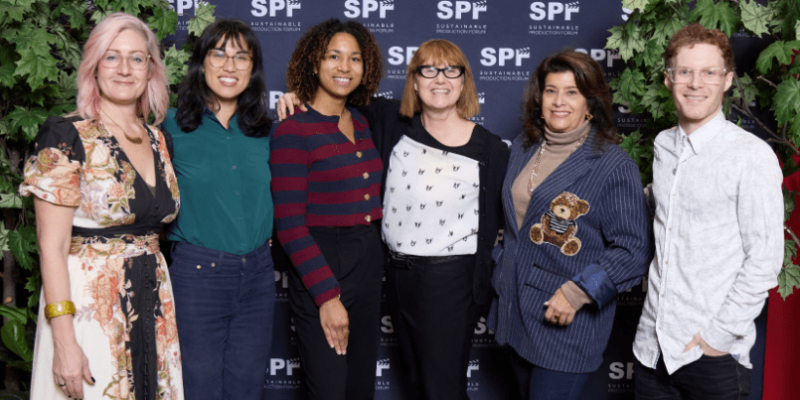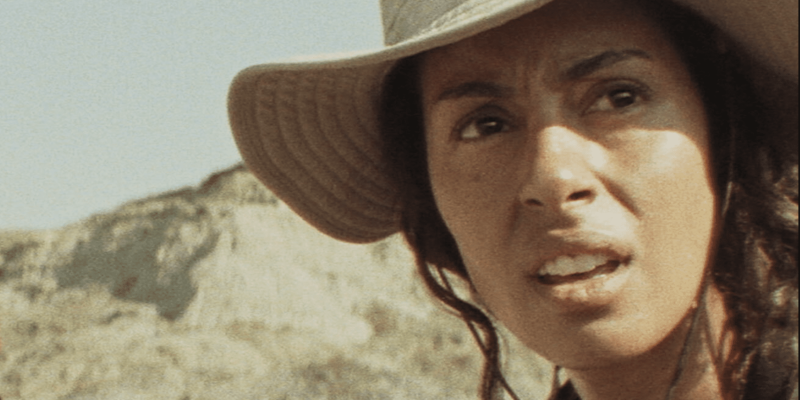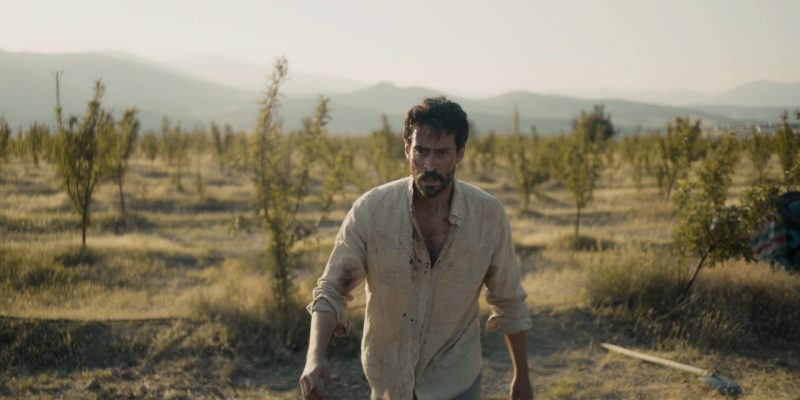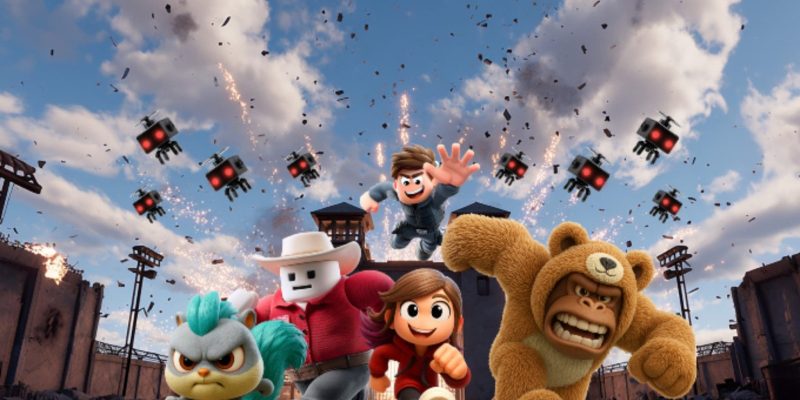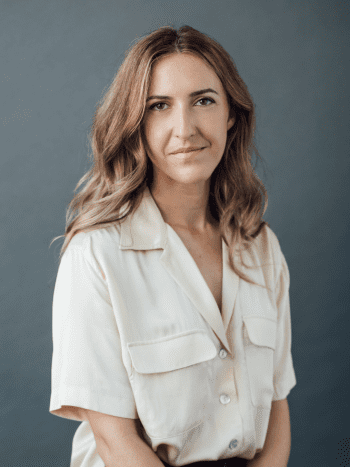
Molly Flood’s The Cut feels, in a word, slippery. Slippery, as in something tricky to hold onto; slippery, as in situated somewhere potentially hazardous. Actually, that seems a perfect description for the film’s all-too-brief canoe trip to an island cabin — which, as it’s mentioned, is located hours from the nearest hospital, something two women will realize when dinner prep leads to a painful slip of a kitchen knife.
“Should we stay or should we go?” Flood says, explaining that her film, which editor Maria Todorov-Topouzov cut to be elliptical in nature (“I adore her pacing — it’s a bit quicker than mine,” Flood says), attempts to capture the pangs of nostalgia that come from wishing summer would never end. “We were after a pace, like a memory slipping away — time running out, as it does in Canadian summers,” she says. “We were outrunning sentimentality. If we kept things moving, we could feel the tension of the question posed.”
The question posed is certainly a sharp one. Should they do more than bandage what’s been wounded? Tougher still: Is that effort even worth it? But, as I mentioned, The Cut is slippery — for if you look closely at the relationship between the two women on screen (one played by Chala Hunter, the other by Flood, eight months pregnant at the time of filming) you’ll notice the same questions are being asked. With their paths about to diverge, is this friendship something they accept will slip through their fingers? Will they work to repair a tenuous connection, or will they mourn and move on?
“This film is deeply personal,” Flood says. “I was quite fearful of losing friends to a baby, and it did happen, but not to the great tragedy I perceived it to be. Two years go by quickly, and you find each other again — in a new place. I believe in change and forgiveness.”
Suddenly, the title of the film suggests a different type of severance: that of ties with people in our lives. “Friendship to me is deeply important, and the tremors of a platonic relationship are often seen as less valued than a romantic involvement,” says Flood. “The structure is different, but the heartache can be just as intense.”
It’s refreshing to see such intensity with stakes far lower than they could have been. (While deep, the dinner injury isn’t the end of the world.) But Flood says the de-emphasis of danger was central to the creative insight. “I grew up watching coming-of-age movies about youth, often boys, on adventures in the wilderness, confronting danger in extreme conditions,” she says, wondering why pregnancy isn’t considered its own coming-of-age. “As I was going through one of the biggest transitions in my life, I started to think about [how] the loss of self, or a deep relationship, is akin to life and death — it deserves to be mourned. And as a filmmaker, the challenge became: How do I make an internal emotional journey just as cinematic without the framework of youth and mortality?”
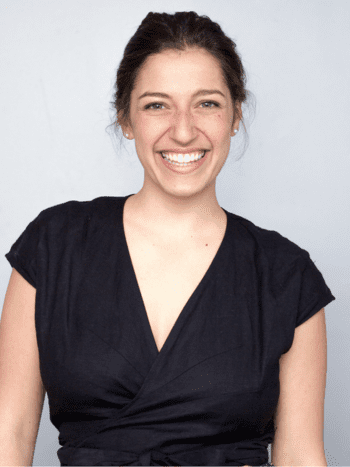
The Cut played as one of seven short films in Telefilm Canada’s Not Short on Talent programme at the Clermont-Ferrand International Short Film Market. Flood and The Cut producer Breann Smordin are also in development on their first feature film together.

